Various Articles
The Characteristics of the Person with Double-facedness: Hypocrisy (Nifaq)
- Published at
-
- Author:
- Ayatullah Rohullah Khomeini

Thiqat al-Islam Muhammad ibn Ya’qub al-Kulayni, from Muhammad ibn Yahya, from Ahmad ibn Muhammad ibn ‘Isa, from Muhammad ibn Sinan, from ‘Awn ibn al-Qalanisi, from Ibn Abi Ya’fur, who reports Abu ‘Abd Allah (Imam al-Sadiq) (A) to have said, “One who meets Muslims with a double face and a double tongue, on the Day of Judgment he will come with two tongues of fire.”
If the ruling of a Mujtahid goes against the ruling of the jurist guardian, which one must be followed?
- Published at
-
- Author:
- Sheikh Mansour Leghaei
 The ruling of the guardian jurist is the one that should be followed in issues that relate to the management of the Muslim nation and the general affairs of the Muslims. As for issues which are purely individual, it is possible for every person to follow their own Marja’.
The ruling of the guardian jurist is the one that should be followed in issues that relate to the management of the Muslim nation and the general affairs of the Muslims. As for issues which are purely individual, it is possible for every person to follow their own Marja’.
Prayer (Salah)
- Published at
-
- Author:
- Muhsin Qara’ati
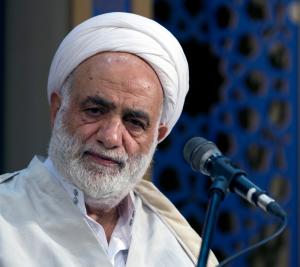 We have discussed the acts of worship and their conditions and philosophy. After stating those generalities, we shall now deal with their manifestations and examine the most apparent form of servitude which is prayer (salah). First of all, we need to know the status of prayer from the perspective of the (Qur’an and hadith). Thereafter, we shall touch on its details and secrets. Let us recall some of the views of the school of revelation (maktab al-wahy) regarding prayer:
We have discussed the acts of worship and their conditions and philosophy. After stating those generalities, we shall now deal with their manifestations and examine the most apparent form of servitude which is prayer (salah). First of all, we need to know the status of prayer from the perspective of the (Qur’an and hadith). Thereafter, we shall touch on its details and secrets. Let us recall some of the views of the school of revelation (maktab al-wahy) regarding prayer:
Visiting the Shrines of the Prophets, Imams and Saints
- Published at
 Some people accuse the Shias of believing that it is permissible to visit the shrines of the Prophets, Imams and saints, building them, to seek blessings through them, to pray and make supplications around them whereas it is prohibited to consider tombs as mosques or to build mosques upon tombs.
Some people accuse the Shias of believing that it is permissible to visit the shrines of the Prophets, Imams and saints, building them, to seek blessings through them, to pray and make supplications around them whereas it is prohibited to consider tombs as mosques or to build mosques upon tombs.
Self-Sacrifice in Order to Reach One’s Objectives
- Published at
-
- Author:
- Ayatullah Ja`far Subhani
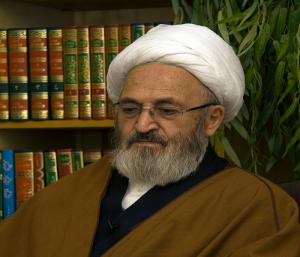 “Without doubt the true believers are only those who have faith in Allah and His Messenger (Muhammad) and then do not change their belief into doubt, and (the believers are those) who struggle with their wealth and their lives in the way of Allah. Surely it is these people alone who are the truthful ones.”
“Without doubt the true believers are only those who have faith in Allah and His Messenger (Muhammad) and then do not change their belief into doubt, and (the believers are those) who struggle with their wealth and their lives in the way of Allah. Surely it is these people alone who are the truthful ones.”
Is to swear by other than Allah regarded as a kind of polytheism?
- Published at
-
- Author:
- Sayyid Rida' Husayni Nasab
 Reply: The interpretation of the words “monotheism” {tawhid} and “polytheism” {shirk} must be in consistency with the Qur’an and the Sunnah of the Prophet (S) because the Glorious Qur’an and the conduct of the Messenger of Allah (S) are the most valuable criteria for distinguishing the truth from falsehood as well as monotheism from polytheism.
Reply: The interpretation of the words “monotheism” {tawhid} and “polytheism” {shirk} must be in consistency with the Qur’an and the Sunnah of the Prophet (S) because the Glorious Qur’an and the conduct of the Messenger of Allah (S) are the most valuable criteria for distinguishing the truth from falsehood as well as monotheism from polytheism.
The True Believer is the most alert and attentive to the next world
- Published at
-
- Author:
- Shaykh Nasir Makarim Shirazi
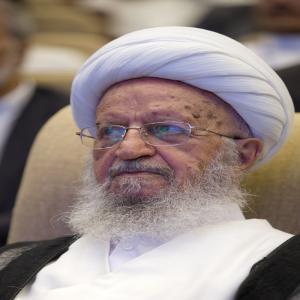 “…if he (the true believer) is in the company of those (attached to the) material world, then he is the most alert and attentive (to the next world); if he is in the company of those (who love the) next life, then he is the one who possesses the most consciousness (of Allah). He does not entertain any form of doubt in relation to his earnings (they are all from the permitted) and he does not allow any leave or departure from his beliefs. If his brother in faith makes a mistake, he forgives it, however he does not forget the good deeds which have been done in the past by his close friends.”
“…if he (the true believer) is in the company of those (attached to the) material world, then he is the most alert and attentive (to the next world); if he is in the company of those (who love the) next life, then he is the one who possesses the most consciousness (of Allah). He does not entertain any form of doubt in relation to his earnings (they are all from the permitted) and he does not allow any leave or departure from his beliefs. If his brother in faith makes a mistake, he forgives it, however he does not forget the good deeds which have been done in the past by his close friends.”
Why do the Shi‘ah perform the five daily prayers in three periods?
- Published at
-
- Author:
- Sayyid Rida' Husayni Nasab
 1. All Muslim groups agree that in ‘Arafah 1 one may perform both noon {zuhr} and afternoon {asr} prayers successively without any interval between them, and in Muzdalifah 2 it is also permissible to say sunset {maghrib} and night {‘isha’} prayers at the time of ‘isha’ prayer.
1. All Muslim groups agree that in ‘Arafah 1 one may perform both noon {zuhr} and afternoon {asr} prayers successively without any interval between them, and in Muzdalifah 2 it is also permissible to say sunset {maghrib} and night {‘isha’} prayers at the time of ‘isha’ prayer.
What Is The Purpose Of Creating The Heavens And The Earth In Six Days?
- Published at
-
- Author:
- Shaykh Nasir Makarim Shirazi & Ayatullah Ja'far Subhani
 The reply is this that basically the word 'Yawma', synonymous in English to 'a day', which is having special meaning according to the place and situation at different times. Generally this word is used in the sense as a day, which is a proof of night. And in the Holy Qur’an also mostly it is used in the same meaning, but sometimes it comes in the meaning of a period, then on every period the word 'Yawma' is applied. For example, an aged person says: One day I was a child - one day I was a young man also - but for today I have become old. Although these three periods are connected (linked) with each other like the links of a chain that is why he interprets those three different periods of his life with the word 'day'.
The reply is this that basically the word 'Yawma', synonymous in English to 'a day', which is having special meaning according to the place and situation at different times. Generally this word is used in the sense as a day, which is a proof of night. And in the Holy Qur’an also mostly it is used in the same meaning, but sometimes it comes in the meaning of a period, then on every period the word 'Yawma' is applied. For example, an aged person says: One day I was a child - one day I was a young man also - but for today I have become old. Although these three periods are connected (linked) with each other like the links of a chain that is why he interprets those three different periods of his life with the word 'day'.
Is asking the rightful intercessors for intercession {shafa‘ah} tantamount to polytheism {shirk}?
- Published at
-
- Author:
- Sayyid Rida' Husayni Nasab
 Therefore, turning for intercession to any other than God means asking for God’s absolute right from His servant and seeking such a need is, in reality, worshipping other than God which is inconsistent with “monotheism in worship” {tawhid fi’l ‘ibadah}.
Therefore, turning for intercession to any other than God means asking for God’s absolute right from His servant and seeking such a need is, in reality, worshipping other than God which is inconsistent with “monotheism in worship” {tawhid fi’l ‘ibadah}.
What are the sources of Shi‘i jurisprudence {fiqh}?
- Published at
-
- Author:
- Sayyid Rida' Husayni Nasab
 Reply: Following the Book of Allah and the Sunnah of the Prophet (S), the Shi‘ah infer religious laws from four fundamental sources:
1. The Book of Allah (Qur’an);
2. The Sunnah of the Prophet (S);
3. Consensus {ijma‘}; and
4. Reason {‘aql}.
Reply: Following the Book of Allah and the Sunnah of the Prophet (S), the Shi‘ah infer religious laws from four fundamental sources:
1. The Book of Allah (Qur’an);
2. The Sunnah of the Prophet (S);
3. Consensus {ijma‘}; and
4. Reason {‘aql}.
The Angel of Death Visits Every House Five Times a Day
- Published at
-
- Author:
- Shaykh Nasir Makarim Shirazi
 Zuhri has narrated from Anas b. Malik that he said “I heard the Messenger of Allah (S) say, 'There is not a single house which exists except that the Angel of Death visits it five times a day. If the lives of any of the people who live in the house or those who are within the house are written to come to an end, then he brings death upon that person.
Zuhri has narrated from Anas b. Malik that he said “I heard the Messenger of Allah (S) say, 'There is not a single house which exists except that the Angel of Death visits it five times a day. If the lives of any of the people who live in the house or those who are within the house are written to come to an end, then he brings death upon that person.
8th of Rabi al-Akher, Food for Thought
- Published at
-
- Author:
- Seyyed Ali Shahbaz
 “O You, Whose light covers darkness, O You, by Whose holiness rugged mountain passes are lit, O You, to Whom all the inhabitants of the earth and the heavens submit, O You, to Whom every insolent tyrant surrenders with obedience, O You the Aware of hidden consciences. You are Merciful to everything and Aware of everything, forgive those who repent and follow Your path; protect them from the torment of Fire, give them soon Your victory that You have promised them of and You do not fail the promise! Devastate the people of evil and take them to the worst abode in the worst punishment and the ugliest retreat.”
“O You, Whose light covers darkness, O You, by Whose holiness rugged mountain passes are lit, O You, to Whom all the inhabitants of the earth and the heavens submit, O You, to Whom every insolent tyrant surrenders with obedience, O You the Aware of hidden consciences. You are Merciful to everything and Aware of everything, forgive those who repent and follow Your path; protect them from the torment of Fire, give them soon Your victory that You have promised them of and You do not fail the promise! Devastate the people of evil and take them to the worst abode in the worst punishment and the ugliest retreat.”
Fault-Finding, Ignorance of One’s Own Faults
- Published at
-
- Author:
- Sayyid Mujtaba Musavi Lari
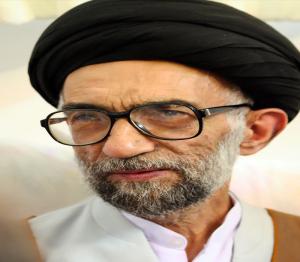 One of the greatest behavioral weaknesses of man is the ignorance of his own faults. In many instances the soul ignores an unwanted quality which results in the subconscious adopting of such a trait as a basis of misery. When a person becomes the slave of his ignorance, he kills the spirit of morality in himself. Thus becoming the victim of his inclinations and various lusts, which isolate him from happiness and comfort. Under such conditions, neither guidance nor constructive advice can be productive.
One of the greatest behavioral weaknesses of man is the ignorance of his own faults. In many instances the soul ignores an unwanted quality which results in the subconscious adopting of such a trait as a basis of misery. When a person becomes the slave of his ignorance, he kills the spirit of morality in himself. Thus becoming the victim of his inclinations and various lusts, which isolate him from happiness and comfort. Under such conditions, neither guidance nor constructive advice can be productive.
The Final Journey and the Remembrance of Death
- Published at
-
- Author:
- Shaykh Nasir Makarim Shirazi
 It has been narrated from Salim b. 'Abdullah from b. 'Umar who said that the Messenger of Allah (S) told me: “Live in the world as if you are a stranger and just passing through and consider yourself as one of those who is already deceased. When you wake up in the morning, do not desire that you should live until the evening and when the evening comes do not think that you will be alive until the morning. Make use of your health before you fall ill, and make use of your youth before you turn old, and make use of your life before you die, since surely you do not know tomorrow (meaning on the Day of Resurrection) what group of people you will be gathered with.”
It has been narrated from Salim b. 'Abdullah from b. 'Umar who said that the Messenger of Allah (S) told me: “Live in the world as if you are a stranger and just passing through and consider yourself as one of those who is already deceased. When you wake up in the morning, do not desire that you should live until the evening and when the evening comes do not think that you will be alive until the morning. Make use of your health before you fall ill, and make use of your youth before you turn old, and make use of your life before you die, since surely you do not know tomorrow (meaning on the Day of Resurrection) what group of people you will be gathered with.”
The Levels of Certainty
- Published at
-
- Author:
- Shaykh Nasir Makarim Shirazi
 Anas b. Malik has narrated that the Messenger of Allah (S) said, “Surely the weakness in certainty is due to people trading the (seeking of the) pleasure of the people for the anger of Allah, the Most High; praising the people for the sustenance which Allah, the Most High has conferred upon you (instead of praising Him); and for blaming others for that which Allah has not given you …
Anas b. Malik has narrated that the Messenger of Allah (S) said, “Surely the weakness in certainty is due to people trading the (seeking of the) pleasure of the people for the anger of Allah, the Most High; praising the people for the sustenance which Allah, the Most High has conferred upon you (instead of praising Him); and for blaming others for that which Allah has not given you …
The Spiritual Life and Death of the Heart
- Published at
-
- Author:
- Shaykh Nasir Makarim Shirazi
 The Prophet Muhammad (S) has said, “O' ‘Ali! Associating with three (groups) of people kills the heart: low people, rich people and (frivolous) talk with women.”
The points which we can benefit from in this tradition which is an excerpt from the testament of the Noble Prophet (S) addressed to the Commander of the Faithful, ‘Ali b. Abi Talib (as) include the following:
The Prophet Muhammad (S) has said, “O' ‘Ali! Associating with three (groups) of people kills the heart: low people, rich people and (frivolous) talk with women.”
The points which we can benefit from in this tradition which is an excerpt from the testament of the Noble Prophet (S) addressed to the Commander of the Faithful, ‘Ali b. Abi Talib (as) include the following:
One of the Greatest Gifts Allah, The All-Merciful Has Given to Mankind is Prayer
- Published at
-
- Author:
- Sayyid Muhammad Husayn Jalali
 One of the greatest gifts Allah (the All-Merciful) has given mankind is prayer. Now, there is ritual prayer (salat) that involves specific actions and sayings to be performed, and then there is du’a (call or supplication). The du’a or call to God (the All-Hearing) really has no conditions except true sincerity or purity. Du’a is a direct link or direct call to the Lord of all things. Meaning, the connection is between you and Allah (all glory be to Him). Yes, people may use different means to reach God, but the call or worship is still directed to God.
One of the greatest gifts Allah (the All-Merciful) has given mankind is prayer. Now, there is ritual prayer (salat) that involves specific actions and sayings to be performed, and then there is du’a (call or supplication). The du’a or call to God (the All-Hearing) really has no conditions except true sincerity or purity. Du’a is a direct link or direct call to the Lord of all things. Meaning, the connection is between you and Allah (all glory be to Him). Yes, people may use different means to reach God, but the call or worship is still directed to God.
The Holy Qur’an brings a message of guidance and social justice
- Published at
-
- Author:
- Sayyid Muhammad Husayn Jalali
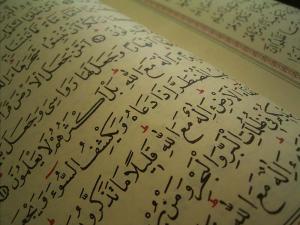 The Qur’an is a revelation sent by God (the All-Mighty) to Prophet Muhammad (peace be upon him and his family). Muslims believe that the Qur’an is the last revelation to mankind. Allah (the All-Praiseworthy) says via Qur’an (3:4-5), “He has sent down to you the Book with the truth confirming what was [revealed] before it, and He had sent down the Torah and the Evangel before as guidance for mankind, and He has sent down the Criterion.”
The Qur’an is a revelation sent by God (the All-Mighty) to Prophet Muhammad (peace be upon him and his family). Muslims believe that the Qur’an is the last revelation to mankind. Allah (the All-Praiseworthy) says via Qur’an (3:4-5), “He has sent down to you the Book with the truth confirming what was [revealed] before it, and He had sent down the Torah and the Evangel before as guidance for mankind, and He has sent down the Criterion.”
A True Believer is Forbearing and Patient
- Published at
-
- Author:
- Shaykh Majaram Nasir Shirazi
 We have been narrating a tradition from the Prophet of Islam (S) to the Commander of the Faithful,'Ali b. Abi Talib (as) in which the Noble Prophet (S) listed one hundred and three characteristics of a true believer and of them, thirty-one have been discussed, and in today's discussion, we cover another four.
We have been narrating a tradition from the Prophet of Islam (S) to the Commander of the Faithful,'Ali b. Abi Talib (as) in which the Noble Prophet (S) listed one hundred and three characteristics of a true believer and of them, thirty-one have been discussed, and in today's discussion, we cover another four.


